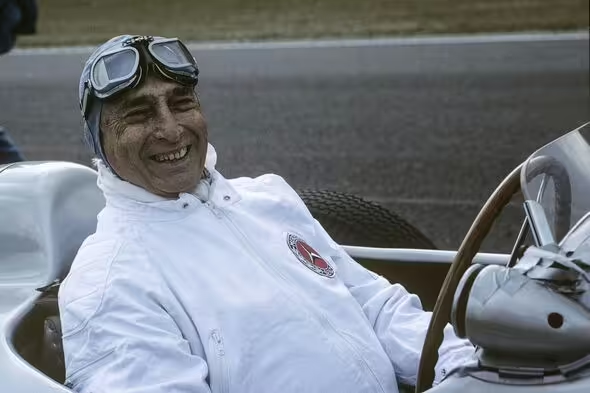F1 champion adored by Michael Schumacher was kidnapped at gunpoint at……read more

F1 champion adored by Michael Schumacher was kidnapped at gunpoint at……read more
Juan Manuel Fangio, often regarded as one of the greatest drivers in Formula 1 history, not only enjoyed remarkable success on the racetrack but also experienced an extraordinary off-track ordeal during the 1958 Havana Grand Prix. The Argentine racer, who secured five World Championship titles and 24 victories in just 51 Grands Prix, was adored by fans and fellow competitors, including Michael Schumacher, who revered Fangio’s achievements.
Fangio’s career was one of dominance in the early years of the sport. His first five titles, all earned within the first nine years of Formula 1’s World Championship era, made him a legend of the sport. Even after Schumacher surpassed his record in 2003, the German driver spoke highly of Fangio, stating, “Fangio is on a level much higher than I see myself. There is absolutely no comparison. What he did stands alone, and what we have achieved is also unique.” Schumacher’s tribute reflects the lasting impact Fangio had on future generations of drivers.
However, the Argentinian driver’s life wasn’t limited to triumphs on the racetrack. One of the most harrowing chapters of his life unfolded during the 1958 Havana Grand Prix, a non-championship race that became notorious for political tensions and a dramatic kidnapping.
At the time, Cuba was under the control of the dictatorial regime of Fulgencio Batista, who had seized power in a 1952 coup. The country’s political situation was increasingly unstable, with widespread unrest. The Havana Grand Prix, which was initially established as a spectacle to promote the regime, was held amidst rising political tensions. For the 1958 race, the authorities assigned bodyguards to the drivers due to security concerns.
Fangio, who had secured pole position for the event, found himself in a precarious situation on the morning of the race. After resting in the Hotel Lincoln lobby bar with fellow drivers, Fangio was approached by a group of fans eager to meet their hero. As he stepped into the crowd to sign autographs, he was suddenly confronted by a man holding a pistol. The situation quickly turned into a kidnapping, as two armed men forced Fangio into a Plymouth car and sped off.
The kidnappers, however, had no intention of harming Fangio. They were part of the Movement of the 26th of July, a political organization led by Fidel Castro that opposed the Batista regime. The kidnappers explained their motives to Fangio, revealing that they were using his high-profile status to draw international attention to their cause. They made it clear that Fangio would be treated with respect, saying, “You are to be our guest. You will not be at the start of the Grand Prix tomorrow, but you will be released shortly after. Our intention is to highlight the political movement which the Batista regime is attempting to suppress.”
Fangio was moved to several locations over the course of the ordeal, and the kidnappers even watched the Grand Prix with him on television the following day. The race itself was not to be remembered for its excitement, as it was halted on lap six following a fatal accident involving driver Armando Garcia Cifuentes. With the race no longer in the public spotlight and international media focusing on the kidnapping, the kidnappers saw an opportunity to release their captive.
In collaboration with Fangio, the kidnappers devised a plan to free the F1 champion without further incident. He was taken to the home of Argentina’s ambassador to Cuba, Raul Lynch, where he was safely delivered, ending the dramatic and unexpected chapter in his life.
The entire episode, which lasted less than a day, highlighted the political unrest in Cuba at the time and brought the international spotlight to the country. While the kidnapping was undoubtedly a terrifying experience for Fangio, it also showcased his grace under pressure and the lengths to which political movements would go to achieve their aims. Despite this terrifying experience, Fangio remained unharmed, and his legendary status in Formula 1 was further cemented.
Fangio’s tale from the 1958 Havana Grand Prix is a testament to the intersection of sport and politics and remains one of the most unusual episodes in the history of motorsport.








